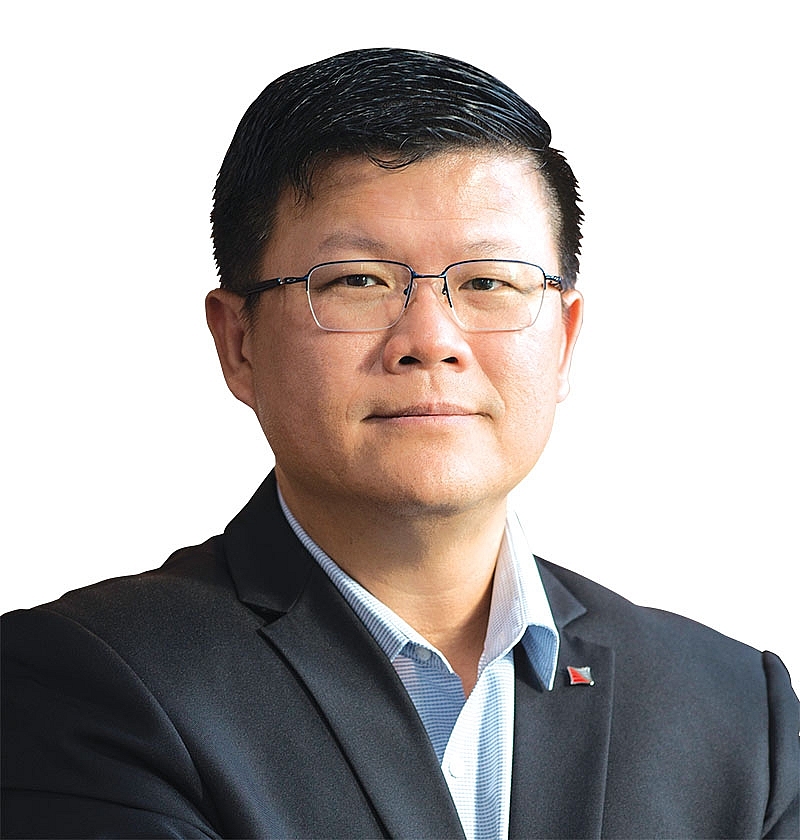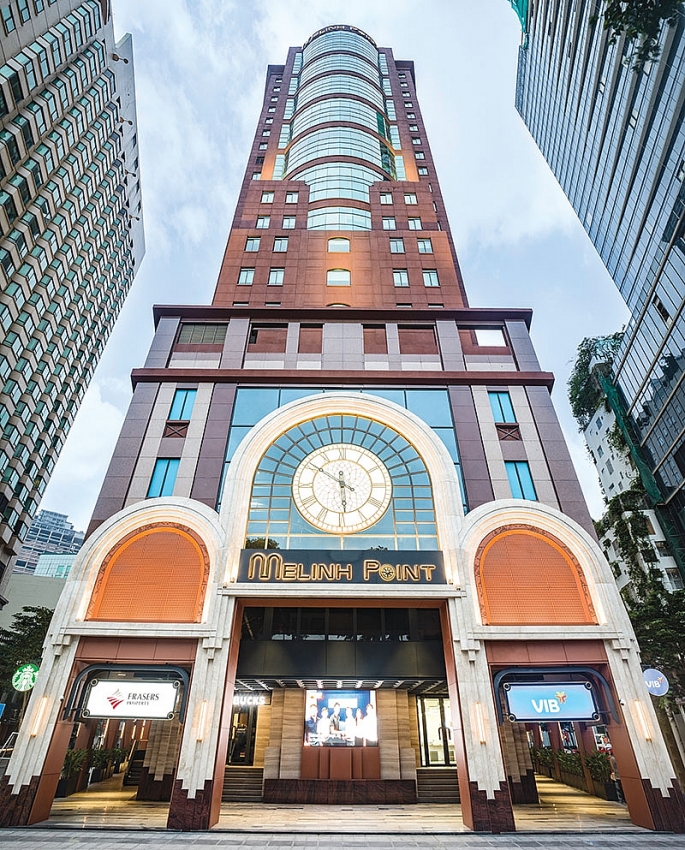Frasers Property to move ahead by pursuing aggressive M&A strategy
What role does M&A play in Frasers Property Vietnam’s development strategy? What have you done so far in Vietnam under the M&A method?
 |
| Lim Hua Tiong, CEO of Frasers Property Vietnam |
In line with our group’s global M&A strategy, Frasers Property Vietnam (FPV) has been actively and aggressively pursuing opportunities in the Vietnamese market.
During the past two years, FPV has completed the set-up of its multi-asset class development platform that is comprised of international and local professionals with strong track records.
We are continuously searching for long-term strategic local partnerships with the belief that our strong financial capabilities and development experiences in both the international and local scene will optimise value for real estate projects in Vietnam.
Our M&A strategy emphasises a “win-win” solution where strategic partners can provide much flexibility and speed while we implement the projects with risks-adjusted strategies.
With two successfully built projects, Frasers Property is well-established in Vietnam with a strong reputation for its real estate development and management expertise.
One of our developments, Melinh Point, is Ho Chi Minh City’s first international-standard office building. We have recently renovated Melinh Point with top quality energy saving and environmentally friendly features to ensure it aligns with the sustainable framework and priorities of our Frasers Property Group. For over 20 years, we have been operating it under a joint-venture with Vietnam's leading brewer Sabeco.
Our second project is Q2 Thao Dien – a mixed-use development in District 2 of Ho Chi Minh City, which encompasses a residential suite, Grade A office space, and an upscale commercial space.
What lessons can investors learn from current M&A projects?
For the past more than 10 years that Frasers Property has been in Vietnam, we have so far managed to complete more than 10 successful transactions. Our extensive market research, thorough review of regulations and documentation, as well as good communications and working relationships with the authorities and land buyers and sellers have been instrumental in the success of our real estate projects. Good relations and understanding land buyers and sellers are one of the most important issues for each party. The two sides must have a common investment strategy and set out a common target for the deal to be truly successful.
As an established foreign investor in the Vietnamese real estate market, how would you assess the potential of the M&A method in Vietnam? Which segment is the most interesting for foreign investors?
Vietnam’s economic performance has been stellar over the last five years and this has accelerated urbanisation especially in key cities. We see expansion opportunities in the Greater Ho Chi Minh City and Greater Hanoi regions, especially for residential and industrial projects. For the residential segment, the trend of projects moving to the outskirts is well underway. Meanwhile, logistics and ready built/built-to-suit factories are seeing increasing demand while the focus for commercial property remains on city offices and serviced apartments as well as hospitality and retail assets in prime locations.
M&A is the most appealing investment channel for foreign investors as domestic developers have been developing at a rapid pace recently. Foreign investors like Frasers Property usually focus on the high-end and luxury residential segment as we can leverage our strategic advantages in securing funds with reasonable interest rates, and bringing in modern international technology and design principles.
The office sector, another potential segment for foreigners, is extremely capital intensive and requires long-term investment, but at the same time offers high rental yields in Vietnam.
The construction of big townships and industrial projects is the third potential segment for foreign investors.
To set up a township, developers must have the capital and advanced technologies for management and operations. Foreign developers have well-established branding and reputation at financial institutions and have a better system of fund raising. This is a fundamental factor for developing a township.
Moreover, foreign developers also have good knowledge and expertise in developing and managing townships, which combine many functions into a single project.
For industrial projects, based on their global network, foreign developers have outstanding capacity to attract international tenants in Vietnam. In many cases, foreign developers can attract “queen bee” tenants who are then followed by many other supportive tenants.
 |
What are your tactics when investing in Vietnam? How can you diversify your portfolio in the safest way?
We are guided by a few key principles when it comes to our investment strategies. We are prudent and endeavour to create and maintain a diversified portfolio to reduce risks. We invest in research and development to bring sustainable solutions to our projects to grow healthy communities and a resilient business. “Experience matters” is at the core of whatever we do.
Residential property will remain our mainstay but we will also diversify into the office and industrial segments, as well as townships.
Currently, we have 3-4 projects in the pipeline which are pending the approval from the authorities. Hopefully, we will be able to embark on these exciting projects at the end of this year.
We are also looking to expanding our portfolio to industrial property, ready-built factories, and warehouses. Globally, Frasers Property owns about seven million square metres of facilities in Australia, Austria, Germany, the Netherlands, and Thailand, and we are bringing this experience and expertise to Vietnam.
We are also interested in township development. As the land funds in inner Hanoi and Ho Chi Minh City are growing scarce, we are looking further out for suitable and large enough land plots to develop a township.
What sets domestic and foreign developers apart in Vietnam?
Based on our observations, local developers have grown stronger over the past five years, supported by greater access to land banks, either through organic asset acquisitions or via M&A.
We have recently been in talks with some big groups in Vietnam to explore strategic collaborations and complement each other’s strengths to enjoy better synergies in developing projects.
We want to create a situation where one plus one is more than two and for that, we come with a very flexible mindset to the negotiating table. If we can develop a proper understanding of how our expertise in various aspects can come together, our collaboration will certainly be successful.
How is the potential of the Vietnamese M&A market?
Vietnam has gradually become one of the hottest destinations for M&A activities in Southeast Asia thanks to its fast economic growth and strong macro pre-cursors like a golden population, huge investments in infrastructure, and a stable political system. Vietnam was ranked second only to the United States, out of 50 economies by Euromonitor International’s M&A environment attractiveness index for the 2020-2021 period.
In our view, the Vietnamese real estate market will only become more attractive for international developers and funds in the coming years. Moreover, with great efforts from the central government, the current legal system has become more transparent and will continue to be so. This is a key factor which will continue to speed up foreign investment in the economy.
While COVID-19 had a temporary dampening effect on M&A activities, especially on cross-border deals, it also enhanced the positive image of Vietnam among investors, thanks to the government’s quick actions to control the pandemic.
Moreover, fast urbanisation has resulted in the positive growth of the real estate and building materials market and raises housing demand that is unmet by a shortage of affordable housing supply.
According to a report of the Ministry of Construction, in the first half of 2020, Vietnam's rate of urbanisation increased by 0.5 per cent on-year.
Recognising this, the Vietnamese government has prioritised transport infrastructure of urban railway, railway, seaports, roads and planned to increase investment from $7 billion (2001-2008) to $120 billion (2020).
What the stars mean:
★ Poor ★ ★ Promising ★★★ Good ★★★★ Very good ★★★★★ Exceptional
Related Contents
Latest News
More News
- Construction firms poised for growth on public investment and capital market support (February 11, 2026 | 11:38)
- Mitsubishi acquires Thuan An 1 residential development from PDR (February 09, 2026 | 08:00)
- Frasers Property and GELEX Infrastructure propose new joint venture (February 07, 2026 | 15:00)
- Sun Group led consortium selected as investor for new urban area (February 06, 2026 | 15:20)
- Vietnam breaks into Top 10 countries and regions for LEED outside the US (February 05, 2026 | 17:56)
- Fairmont opens first Vietnam property in Hanoi (February 04, 2026 | 16:09)
- Real estate investment trusts pivotal for long-term success (February 02, 2026 | 11:09)
- Dong Nai experiences shifting expectations and new industrial cycle (January 28, 2026 | 09:00)
- An Phat 5 Industrial Park targets ESG-driven investors in Hai Phong (January 26, 2026 | 08:30)
- Decree opens incentives for green urban development (January 24, 2026 | 11:18)

 Tag:
Tag:





















 Mobile Version
Mobile Version